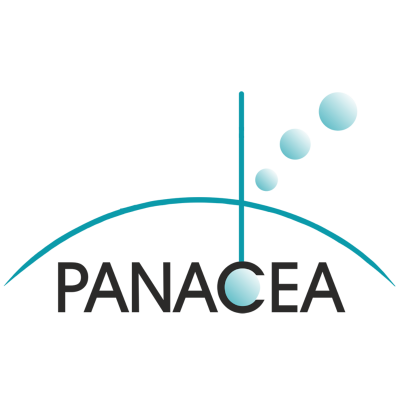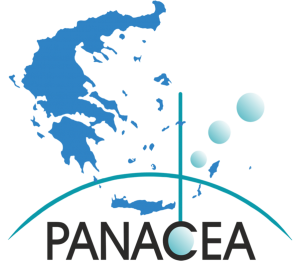The University of Crete is a young public educational institution committed to excellence in research and teaching. Established in 1973, the University accepted its first students in 1977-78. It now has 16 Departments in 5 Schools (Philosophy, Education, Social, Economic & Political Sciences, Sciences & Engineering, and Medicine) as well as a number of affiliated research-oriented institutions, including the Skinakas Observatory, the Natural History Museum, and the University General Hospital. In 1997, the Environmental and Chemical Processes Laboratory (ECPL) has been established by the Department of Chemistry and the Senat of the University of Crete as an independent unit of the Division of Environmental and Analytical Chemistry. The ECPL activities concern Teaching, Research, Informing and Consulting on on issues related to Environment and Environmental pollution.
The National Observatory of Athens (NOA) was founded in 1842 and is the oldest research foundation in Greece. It currently includes three research institutes: the Institute for Astronomy, Astrophysics, Space Applications and Remote Sensing, the Institute of Environmental Research and Sustainable Development, and the Institute of Geodynamics. Each one of its institutes focuses on well defined and complementary research areas operating a number of facilities, such as telescopes and various sensing stations, located both in the Athens metro area as well as in various places all over Greece.
The National Observatory of Athens includes three research institutes: the Institute for Astronomy, Astrophysics, Space Applications and Remote Sensing,the Institute of Environmental Research and Sustainable Development, and the Institute of Geodynamics
The National Observatory of Athens includes three research institutes: the Institute for Astronomy, Astrophysics, Space Applications and Remote Sensing,the Institute of Environmental Research and Sustainable Development, and the Institute of Geodynamics
Aristotle University of Thessaloniki, Departments of Physics & Geology (AUTH)
The Aristotle University of Thessaloniki is the largest university in Greece. The main campus is located in the centre of the city of Thessaloniki, and covers an area of about 33.4 hectares. It comprises 10 faculties which consist of 40 schools and 1 single-School Faculty.Some educational and administrative facilities are located off campus for practical and operational reasons. A number of these facilities are located outside the city of Thessaloniki or even in other cities.
About 73.930 students study at the Aristotle University (65.026 in undergraduate programmes and 8.472 in postgraduate programmes, of which 3952 at Doctoral level). There are 2.024 faculty members. There are also 11 teaching assistants, 58 research fellows, 248 members of the Special Laboratory Teaching Personnel (S.L.T.P.), 69 of whom belong to category Ι and 179 to category ΙΙ, as well as 15 foreign language teachers and 4 foreign instructors. Faculty members are also assisted by 213 members of the Special Technical Laboratory Personnel (S.T.L.P.). The administration office consists of 400 permanent employees and 528 employees under a private law contract of indefinite duration. Moreover, 596 people employed by third parties provide services at the university.
About 73.930 students study at the Aristotle University (65.026 in undergraduate programmes and 8.472 in postgraduate programmes, of which 3952 at Doctoral level). There are 2.024 faculty members. There are also 11 teaching assistants, 58 research fellows, 248 members of the Special Laboratory Teaching Personnel (S.L.T.P.), 69 of whom belong to category Ι and 179 to category ΙΙ, as well as 15 foreign language teachers and 4 foreign instructors. Faculty members are also assisted by 213 members of the Special Technical Laboratory Personnel (S.T.L.P.). The administration office consists of 400 permanent employees and 528 employees under a private law contract of indefinite duration. Moreover, 596 people employed by third parties provide services at the university.
National Centre for Scientific Research “Demokritos”(NCSR-D)
Founded in July 1961 as a Research Centre for Nuclear Research, Demokritos is today the largest multidisciplinary Research Centre of Greece with approximately 180 Researchers in tenured and tenure-track positions and over 500 Research Personnel working in projects funded mainly by grants from State Funds, the European Union and Private Industries. The Centre consists of five independent Institutes focusing on different scientific fields. It is governed by the Board of Directors and is supervised by the General Secretariat of Research and Technology, which is in the Ministry of Education, Research and Religious Affairs of Greece.
National Technical University of Athens, Physical Sciences (NTUA)
The LASER REMOTE SENSING UNIT (LRSU) belongs to the Laboratory of Optoelectronics and Lasers both at the Physics Department of the School of Applied Mathematics and Physical Sciences at the National Technical University of Athens (NTUA), Athens, Greece. The mission of LRSU is to perform high-rated research on various topics of Environmental Sciences, such as Laser Remote Sensing of the Atmosphere, Atmospheric Physics, Air Pollution Monitoring, Atmospheric Optics, UV-B Radiation, Environmental Physics and Global Climate Change Mitigation Studies. Essential highly-rated research is focused on the development of novel pulsed solid state laser sources for Space applications (funded by ESA).
The Institute of Chemical Engineering Sciences (ICE-HT) was established in 1984, as an Independent Academic Institute (initially under the name Institute of Chemical engineering and High Temperature Chemical Processes). In 1987 ICE-HT became one of the founding Institutes of FORTH (Foundation for Research and Technology, Hellas) which comprises eight Research Institutes (5 in Heraklion, 1 in Rethymnon, 1 in Chania, and 1 in Patras). During its operation ICE-HT has been developed into a world-leading centre for the advancement of high quality scientific knowledge in the fields of chemical engineering sciences. ICE-HT has participated in numerous RTD projects in cooperation with industrial enterprises, universities and research centers from Greece, as well as from other EU-member countries, USA, Japan, etc, with funding from national and EU competitive R&D programs, or directly from industry.
Biomedical Research Foundation of the Academy of Athens (BRFAA)
The Biomedical Research Foundation of the Academy of Athens (BRFAA) is the most recent addition to the Life Sciences Research organizations in Greece, which begun its activities in 2004. It is located at a distance of 3 km from downtown Athens, and is housed in a modern 32,000 m2 building.The founding principle of BRFAA is to host both basic and clinical research, thus, providing an ideal setting for the emergence of translational activities (Medical Application). The main goal of BRFAA is to achieve excellence in the Biomedical Sciences by recruiting high quality investigators carrying out cutting-edge basic and translational research and by training young researchers in a state-of-the-art facilities, which provide a particularly stimulating scientific environment and strong research infrastructures.
The University of the Aegean (UAegean) was founded in 1984 aiming to introduce new approaches in higher education in Greece and worldwide and to promote regional development. Situated in 6 picturesque islands in the Aegean Archipelago, the UAegean offers a unique natural, cultural and human environment for modern studies in the ancient cradle of knowledge. From its earliest days, the UAegean challenged the prevailing limitations of the academic endeavor in Greece, both in terms of educational approach and in terms of organizational structure. These challenges were soon transformed into advantages which have culminated in academic achievements and the rapid development of the institution. The UAegean has received consistently excellent feedback in evaluations that have taken place at national, European and international level, as a result of the study programmes offered by the institution and its competitive research programs.
The University of Patras (UP) ranks in the third (3rd) place among the Greek universities concerning the size of student potential, the faculty members, administrative personnel, number of departments, and accredited student titles. It consists of 7 schools and 35 departments and its number of publications and research programs are of significant importance among the Greek academic community. In the latest version of the Academic Ranking of World Universities (ARWU, known better as Shanghai ranking), the University of Patras has been ranked between 201-300 universities in the module of Atmospheric Sciences. The Laboratory of Atmospheric Physics of the University of Patras (LAPUP) was founded in 1968. Its activities include teaching and research in Atmospherics Physics, Meteorology, Climatology and Environmental Physics. The LAPUP personnel work mainly on the research and the development in scientific areas of Atmospheric Forecasts, Dynamics of Complex Systems, Management of Extreme Weather Events, Solar Radiation and Stable Isotopes in the Atmosphere. The research applications include plethora of weather and climate dependent coupled systems such as air pollution, infectious diseases, air pollutants emissions, energy, water resources etc.
The Hellenic Centre for Marine Research (HCMR) is a governmental research organization operating under the supervision of the General Secretariat for Research and Technology (GSRT) of the Ministry of Culture, Education and Religious Affairs. HCMR comprises by three research Institutes; Institute of Marine Biology, Biotechnology and Aquaculture (IMBBC), Institute of Marine Biological Resources and Inland Waters (IMBRIW), Institute of Oceanography (IO). It aims to carry out scientific and technological research, and experimental development, dissemination and implementation of produced results, especially in the fields of study and protection of the hydrosphere, its organisms, its interface with the atmosphere, the coast and the sea bottom, the physical, chemical, biological and geological conditions that prevail and regulate the above mentioned systems with the production of products and supply of services, the support of decision-making concerning the general public, the economy and culture and their economical exploitation either by the HCMR and/or by its employees or by third parties.


